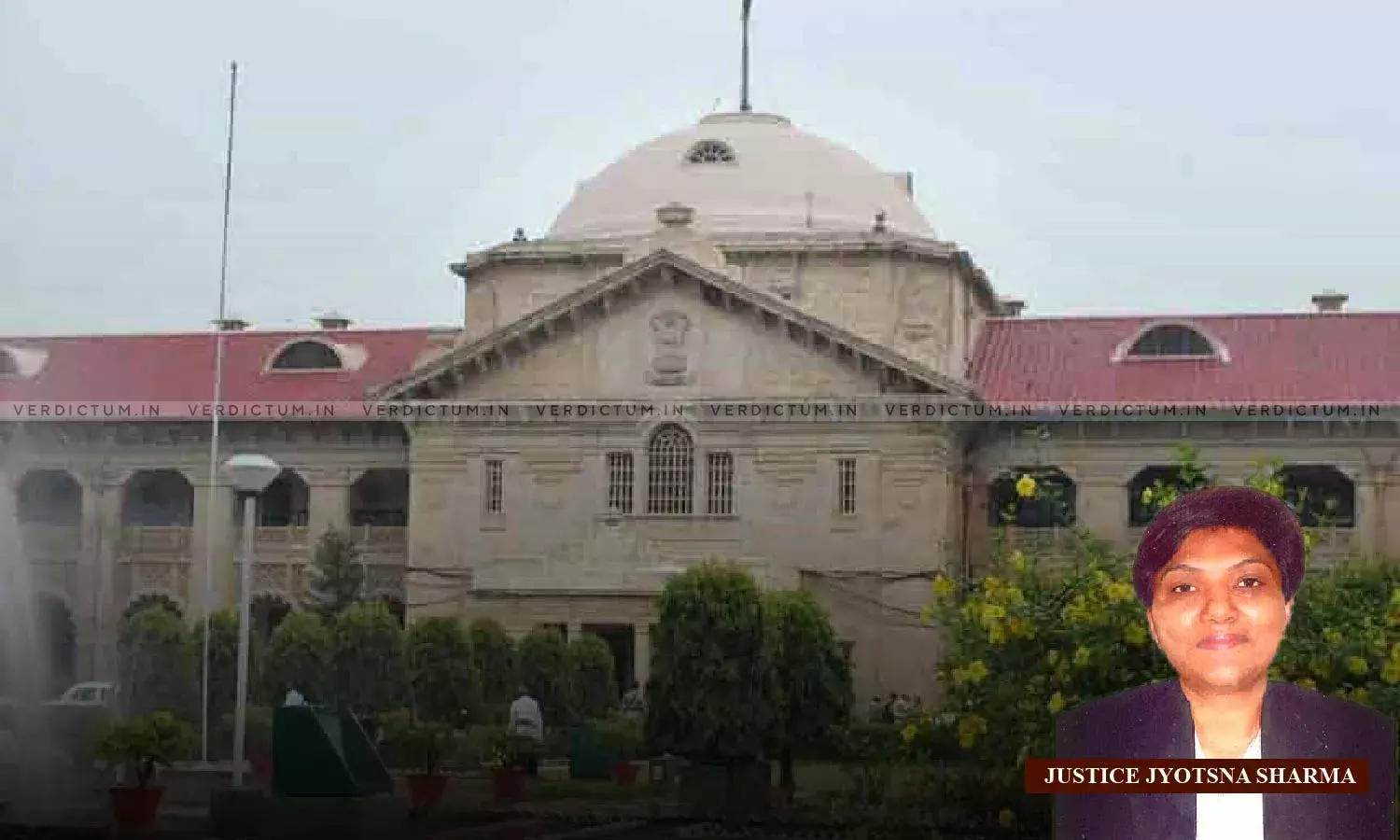When There Is Change In Circumstances Entitling Person To Be Claimant U/s. 125 CrPC, One Can Apply For Maintenance: Allahabad HC

The Allahabad High Court has held that when there is a change in circumstances entitling a person to be a claimant as per Section 125 of the Criminal Procedure Code (Cr.PC.), he or she may apply for the maintenance.
A Single Bench of Justice Jyotsna Sharma observed, “There may be instances where the person who falls within the purview of section 125 Cr.P.C. as being one who has been neglected or refused maintenance during certain period of time. There may be some instances where a person, is for the time being able to maintain himself or herself looses her/his resources because of changed circumstances. In such cases a fresh right to claim maintenance may accrue. Legally the liability to maintain under section 125 Cr.P.C. is continuing one. In my view, when there is a change in circumstances entitling a person to be a claimant as per provisions of section- 125 Cr.P.C., he or she can very well apply for maintenance.”
The Bench said that if the aforesaid option is foreclosed, it shall frustrate the very purpose of Section 125 Cr.PC.
Advocate Satish Kumar Mishra appeared on behalf of the petitioner while AGA O.P. Mishra and Advocate Shyam Sunder Mishra appeared on behalf of the respondents.
Factual Background -
A writ petition was filed seeking the issuance of writ, order, or direction in the nature of certiorari quashing the orders passed by the Additional District Judge and Additional Chief Judicial Magistrate in 2006 and 2004 respectively. The respondent i.e., the wife filed an application under Section 125 Cr.PC. claiming maintenance from her husband which was dismissed in 1995 on certain grounds, and thereafter the criminal revision plea was also dismissed.
She again moved a second application under Section 125 Cr.PC. on the premise that there have been changes in circumstances and hence she is entitled to claim maintenance as a result of which her plea was allowed directing her husband to pay Rs. 1,500/- per month. The husband i.e., the petitioner being aggrieved by the same approached the High Court stating that her wife never challenged the order of the revisional court by which the earlier order passed by the trial court rejecting the first application was affirmed and hence the order against her wife became final.
The High Court after hearing the contentions of the counsel noted, “… it has been clearly laid down that order of civil court could be challenged under Article 227 of the Constitution of India and not under original writ jurisdiction under Article 226 of the Constitution of India. … This petition under Article 226 of the Constitution of India came to be filed by the husband with a prayer to quash those orders in 2008 and since then matter is pending. Almost 14 years have gone since then and all this while, this legal issue was neither raised nor realised that the writ petition seeks to invoke powers under Article 226 instead of Article 227 of the Constitution of India.”
The Court said that it is settled law that non-mentioning or wrong mentioning of provisions of the law should not be treated as an obstacle in proceeding with a case.
“In my view, an ordinary litigant cannot be expected of having too minute knowledge of provisions of law and that the court shall be failing in its duty if the case is thrown in the waste paper basket on a technical point or on the basis of mentioning of a wrong provision of law. In such matter, a Judge ought to play its expected role. In this view of the matter, I find it fit to treat this petition as one moved under Article 227 of the Constitution of India”, held the Court.
The Court observed that the solemn aim of the proceedings under Section 125 Cr.PC. is to prevent vagrancy and destitution, and though the petitioner has objected to the fact of remarriage, in the exercise of writ jurisdiction, the court is not permitted to go into the disputed questions of fact.
Accordingly, the Court dismissed the plea and refused to interfere with the order of the trial court or revisional court.
Cause Title- Shyam Bahadur Singh v. State of U.P. and Another (Neutral Citation: 2023:AHC:114038)


